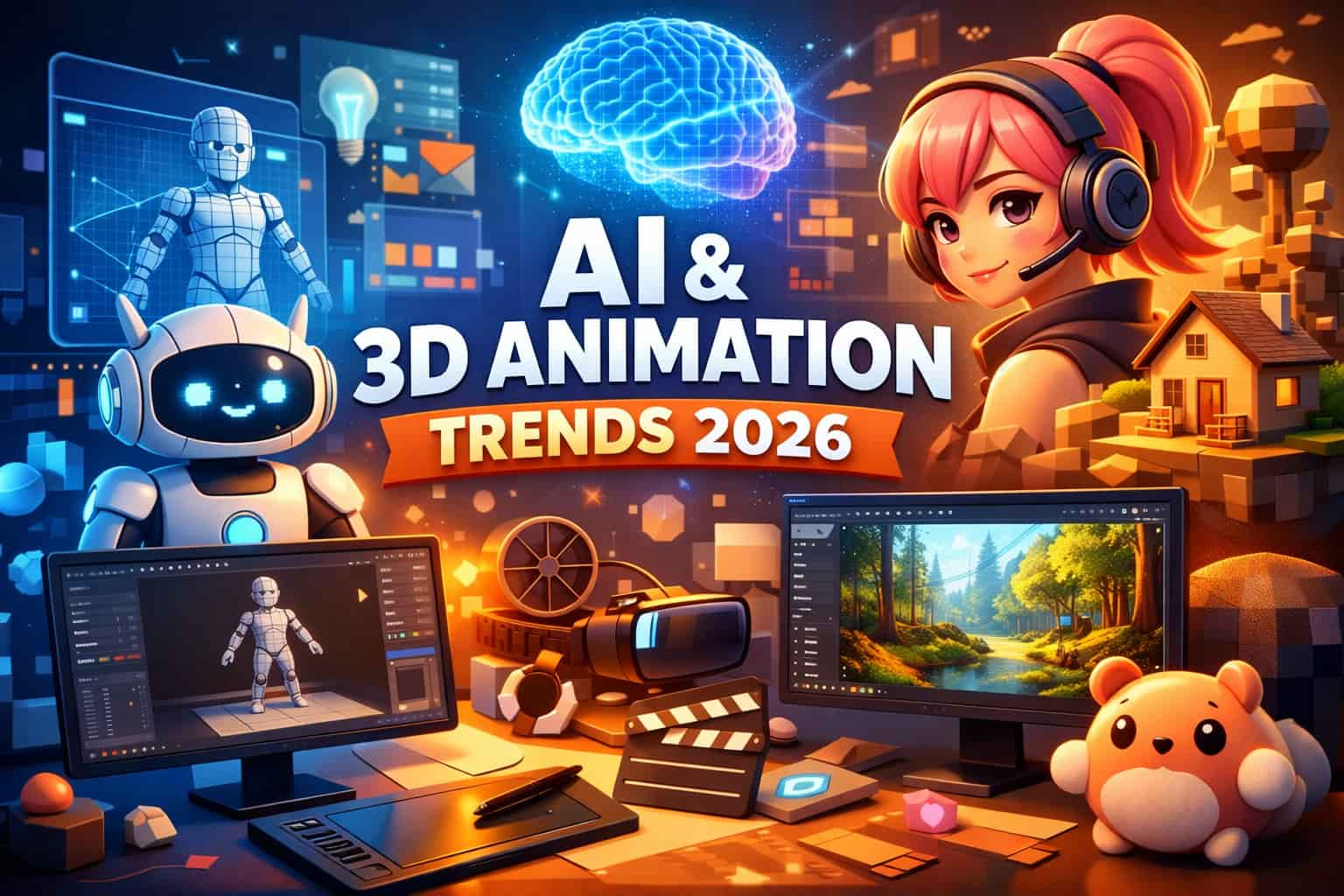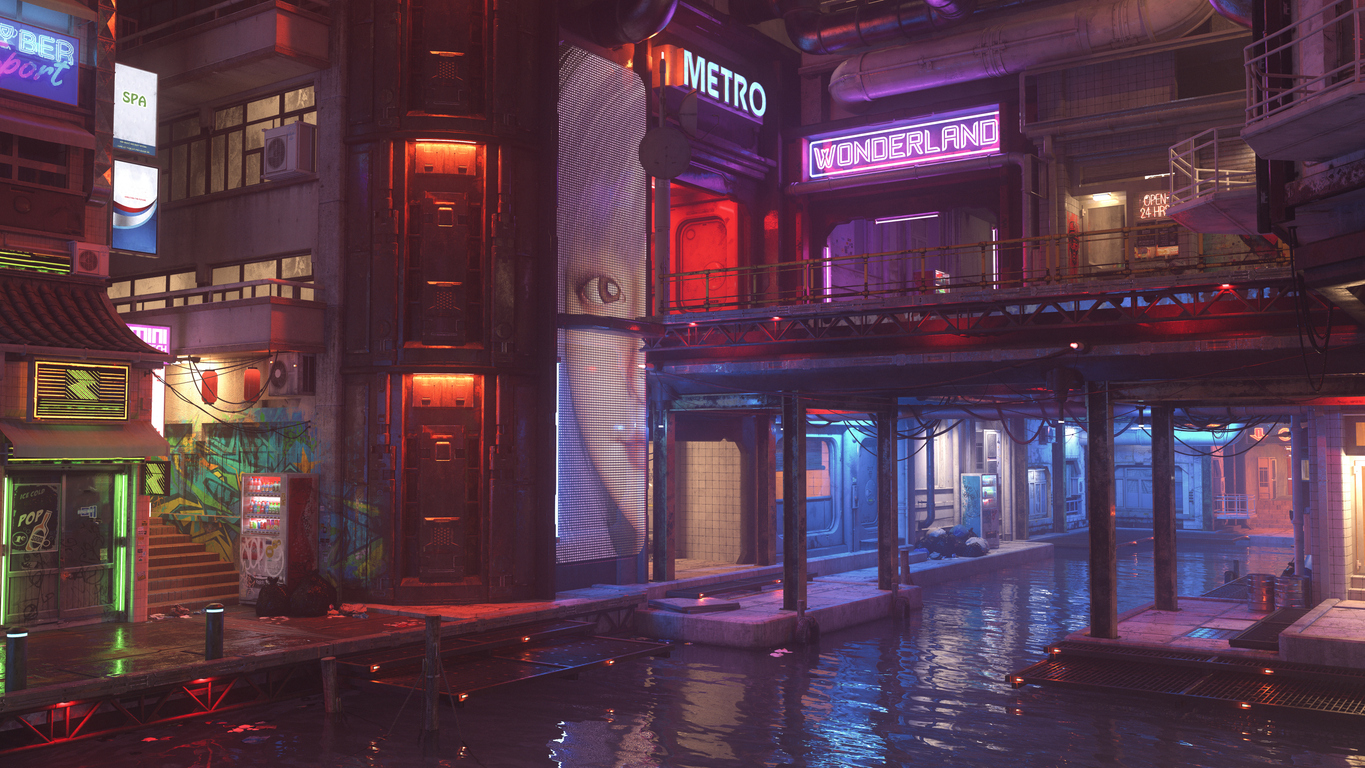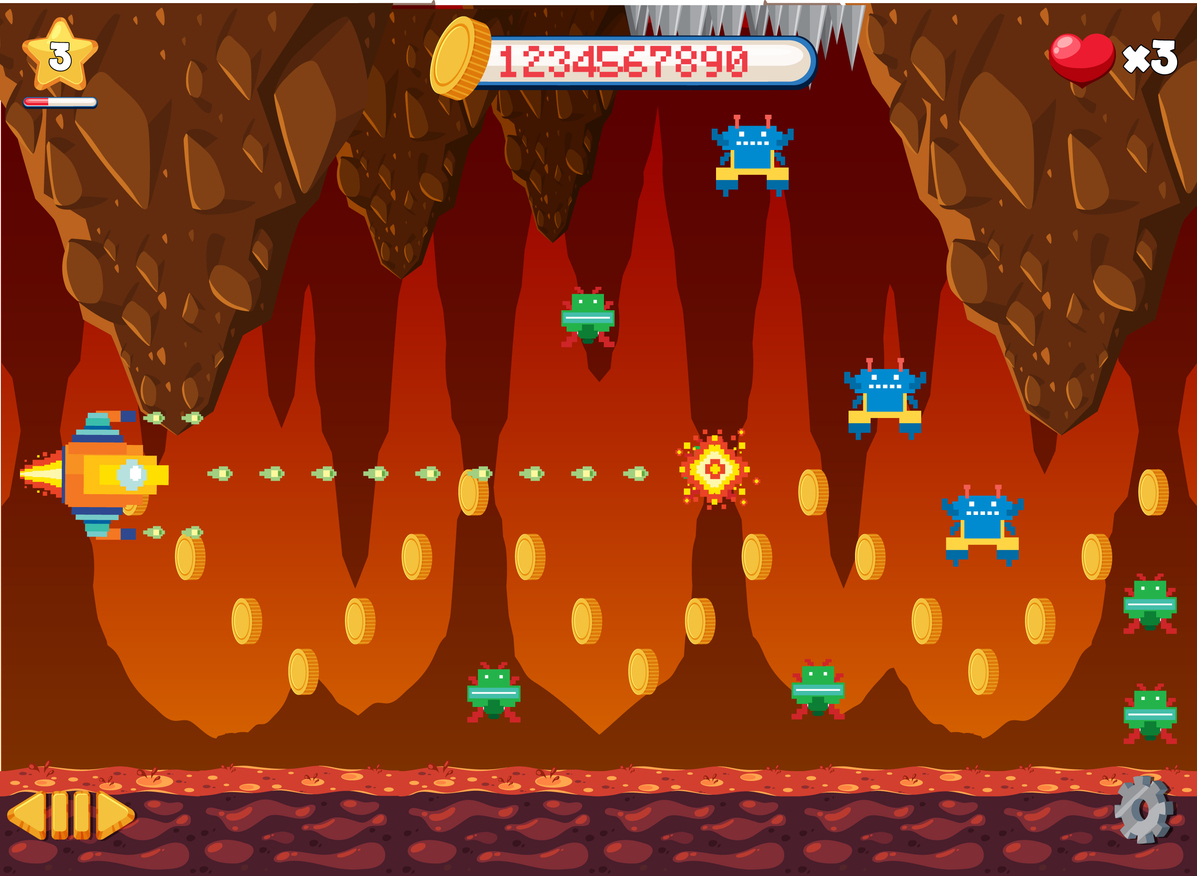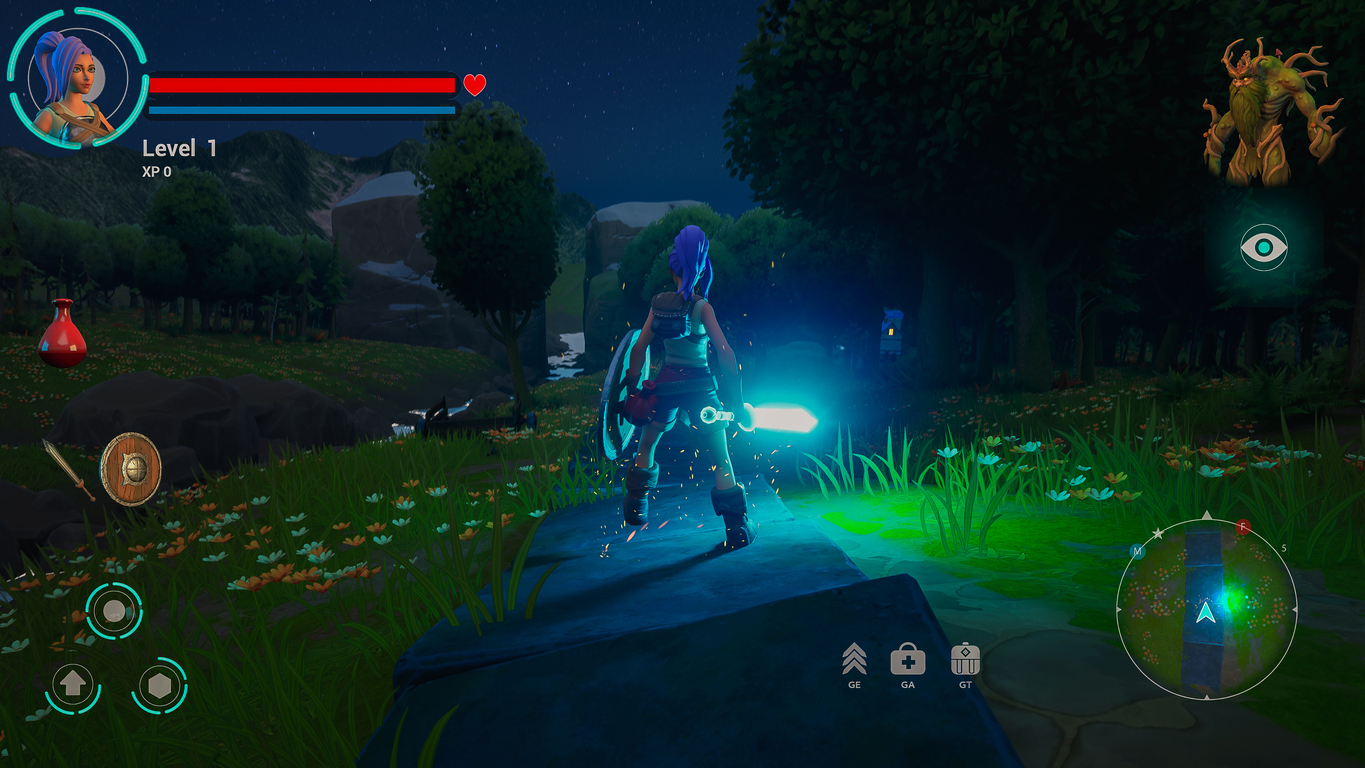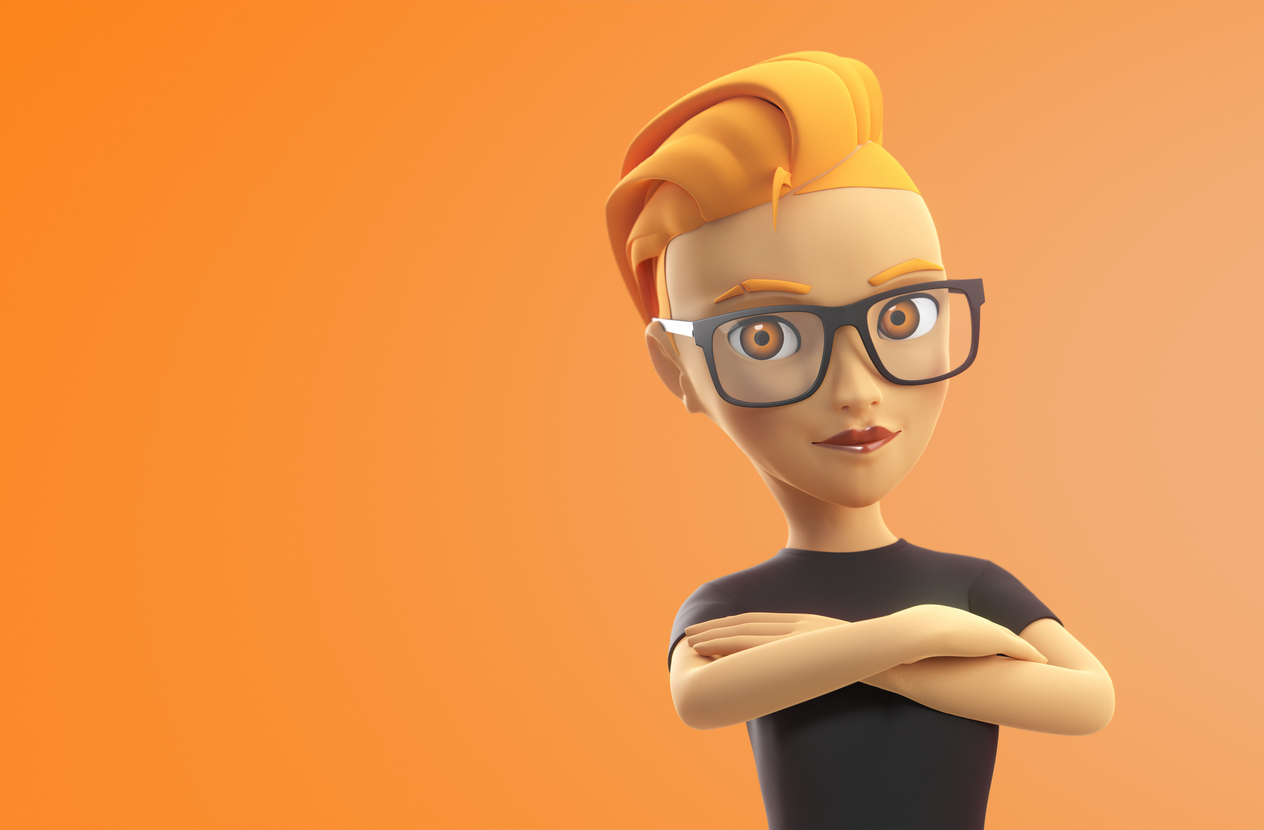Video games have transformed from a niche hobby into a global entertainment powerhouse, captivating players across platforms and age groups. From indie passion projects to blockbuster AAA titles, the video game industry continues to expand rapidly, with projected global market revenues exceeding $268 billion by 2025, according to Wikipedia.* At the heart of this growth lies an indispensable element: programming languages.
Programming is the magic behind the mechanics, visuals, and interactivity of every game. Whether you dream of developing immersive RPGs, fast-paced shooters, mobile puzzles, or web-based simulators, choosing the right programming language is crucial. In this blog, we will explore the top programming languages for game development, highlight their advantages and limitations, and introduce a dynamic learning opportunity through VCAD's Game Development and Design program.
What is Game Development?
Game development is the multidisciplinary process of designing, coding, creating, and publishing interactive digital experiences. It merges storytelling, art, music, mechanics, and technology to produce games for platforms like PCs, consoles, smartphones, VR headsets, and browsers. From concept to execution, game development involves various roles: game designers, artists, sound engineers, QA testers, and, most importantly, game developers or programmers. Game developers use programming languages to build the game's structure, integrate graphics and sounds, implement user inputs, and ensure seamless performance. The choice of programming language often depends on the type of game, platform, game engine, and developer expertise.
As the industry evolves, game development also encompasses user experience (UX), monetization strategies, and multi-platform optimization. Developers must now consider gameplay mechanics, social integration, and scalability across devices, all of which add layers of complexity that the right programming language can help manage effectively.
Bonus Read: Become Graphic Designer Without Degree
Top Programming Languages for Game Development
Let’s dive into the most popular and powerful programming languages used by game developers today.
1. C++
C++ is the cornerstone of high-performance game development. Known for its speed and efficiency, it offers low-level memory manipulation and hardware control, making it ideal for resource-intensive and graphically complex games.
Pros:
- Exceptional performance and processing speed
- Direct access to hardware and memory management
- Widely used in AAA titles and game engines (e.g., Unreal Engine, CryEngine)
- Extensive libraries and community support
Cons:
- Steeper learning curve
- More verbose and complex syntax
- Time-consuming debugging process
Used in:
Minecraft, Counter-Strike, StarCraft, World of Warcraft
C++ also enables developers to create custom engines tailored to specific games, which is a crucial advantage in the competitive world of AAA development. While harder to master, its powerful performance capabilities make it the gold standard in high-end gaming.
2. C#
C# (C-sharp) is a modern, object-oriented language developed by Microsoft. It is the primary scripting language for Unity, one of the most widely used game engines.
Pros:
- Beginner-friendly syntax
- Powerful object-oriented programming (OOP) capabilities
- Tight integration with Unity 3D
- Ideal for cross-platform and mobile games
Cons:
- Less control over low-level operations
- May not perform as efficiently as C++ for complex 3D games
Used in:
Pokémon Go, Super Mario Run, Temple Run
Unity's widespread adoption in mobile and indie development owes much to C#. It's also used in AR/VR game development and has become essential for rapid prototyping and educational projects.
3. Java
Java is a versatile, high-level language known for its portability and readability. It’s widely used in mobile and Android game development.
Pros:
- Platform independence via Java Virtual Machine (JVM)
- Rich libraries and frameworks (e.g., LibGDX, jMonkeyEngine)
- Strong community and open-source resources
- Supports multithreading for smooth performance
Cons:
- Less efficient than C++ for hardware-intensive games
- Not typically used for console or AAA titles
Used in:
Minecraft, Runescape, Mission Impossible III
Java also excels in educational and casual game environments where ease of development and platform flexibility are more important than raw performance.
4. JavaScript
JavaScript is the lifeblood of browser-based and HTML5 games. It integrates seamlessly with web technologies, making it ideal for casual and cross-platform games.
Pros:
- Runs on nearly all browsers and devices
- Large ecosystem of tools, frameworks, and libraries (e.g., Phaser, Three.js)
- Excellent for 2D web and mobile games
- Quick development and deployment cycle
Cons:
- Limited performance for high-end graphics
- Not suitable for console or AAA games
Used in:
Angry Birds (web), Gods Will Be Watching, Aquaria
For developers targeting accessibility and instant play, JavaScript provides a lightweight yet powerful option for fast, browser-based games that reach a wide audience.
5. Python
Python is beloved for its simplicity and readability, making it an excellent entry point for new game developers. Though not commonly used for large-scale games, Python is great for learning and prototyping.
Pros:
- Easy to learn and understand
- Excellent for prototyping and scripting
- Supported by game libraries like Pygame and Panda3D
- Large, supportive community
Cons:
- Slower performance
- Not widely used in professional game studios
Used in:
Mount & Blade, Toontown Online, Battlefield 2
Python’s readability and flexibility make it ideal for educational environments and quick prototyping of gameplay ideas before committing to more complex codebases.
6. Lua
Lua is a lightweight, embeddable scripting language often used within game engines to handle in-game mechanics and modifications.
Pros:
- Extremely fast and efficient
- Easy to embed in other applications
- Ideal for scripting and modding
- Used in engines like Corona SDK, Cocos2D
Cons:
- Not as versatile as full-scale languages
- Smaller standard library
Used in:
Roblox, Age of Conan, Baldur’s Gate, Angry Birds
Lua’s speed and low resource footprint make it popular for embedded systems, mods, and real-time event scripting.
7. HTML5
While not a programming language per se, HTML5 is a critical web standard used alongside JavaScript for browser-based game development.
Pros:
- Enables games to run on all major browsers
- Great for lightweight, mobile-friendly games
- Simple to use with multimedia content
Cons:
- Limited for performance-heavy or 3D games
- Dependent on browser compatibility
Used in:
World Cup Penalty 2018, Gods Will Be Watching
HTML5 is vital for cross-platform games targeting broad accessibility and compatibility, often in the educational or marketing game space.
Game Development and Design Program by VCAD
Aspiring to build the next big game? The Game Development and Design program at Visual College of Art and Design (VCAD) is your launchpad for an exciting and fulfilling career in the gaming industry. Offered online for maximum flexibility, this program allows students to cultivate both technical and creative skills from the comfort of their home.
Why Choose VCAD's Game Development Program?
- Industry Mentorship: Learn from experienced professionals who bring real-world knowledge and insights into the classroom.
- Hands-on Learning: Engage in practical projects using industry-standard tools and game engines.
- Professional Portfolio: You will learn how to build a portfolio that demonstrates your unique talents and vision to future employers.
- Approved Program: The program is certified by the Registrar of the Private Training Institutions Regulatory Unit (PTIRU) under the Ministry of Post-Secondary Education and Future Skills, ensuring top educational standards in British Columbia.
Key Skills You'll Gain:
- Game Theory and Mechanics
- Storyboarding and Game Narrative Development
- Character Design and 3D Modeling
- Environment and Level Design
- Video Game Animation
- Game Conceptualization
- Programming Fundamentals
- Team Collaboration and Workflow Tools
Career Opportunities:
Graduates of the program can pursue careers in:
- Game Development Companies
- Computer Animation Studios
- Post-Production and Special Effects Studios
- Industrial Design Firms
- Software Publishing Firms
- Independent Game Studios
VCAD’s flexible model allows students to personalize their educational experience. Whether you’re a full-time student or balancing work and family responsibilities, the online format ensures access without compromise.
Cutting-Edge Software & Tools:
You’ll work with tools used by industry professionals such as Unity, Unreal Engine, Adobe Creative Suite, and 3D modeling programs like Maya or Blender. This exposure prepares you to hit the ground running in a competitive job market.
Bonus Read: Software To Learn for a Career in Game Design
Final Thoughts
Choosing the right programming language is the first step in your game development journey. Each language has its strengths and weaknesses, and the best one for you will depend on your project goals, platform, and personal preferences. Whether you aim to develop mobile games, web-based experiences, or fully immersive 3D worlds, there’s a language and a path for you.
And if you're serious about turning your passion into a career, VCAD's Game Development and Design program offers the comprehensive training, mentorship, and portfolio development you need to break into the industry. With flexible learning, industry-standard tools, and expert instructors, VCAD helps you transform your creative energy into playable realities.
So, whether you’re a coding enthusiast, an artist looking to digitize your creativity, or a gamer with big ideas, take the leap. With the right language and the right training, you can bring your dream game to life.
Step into the world where imagination meets innovation—start your game development journey today with VCAD.
* https://en.wikipedia.org/wiki/Video_games_in_the_United_States
